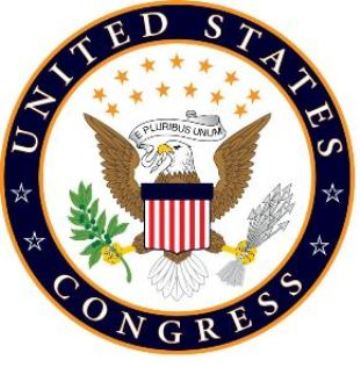U.S. Congress Committee calls for Hybrid Court on S. Sudan
August 29, 2016 (JUBA) – August 29, 2016 (JUBA) – A United States congressional Subcommittee on Africa and Global Human Rights on the visit to South Sudan has urged the African Union (AU) to speed up the establishment of the hybrid court for South Sudan in order to bring to book South Sudanese leaders accused of committing war crimes and crimes against humanity from 15 December 2015.
 Christopher Henry Smith, who is the Chairman of the Subcommittee on Africa, Global Health, Global Human Rights and International Organizations at the U.S. House of Representatives, said he is in South Sudan with his team to listen, learn and hear from the leaders what are their plans with regards to the establishment of the hybrid court in accordance with the August 2015 peace agreement.
Christopher Henry Smith, who is the Chairman of the Subcommittee on Africa, Global Health, Global Human Rights and International Organizations at the U.S. House of Representatives, said he is in South Sudan with his team to listen, learn and hear from the leaders what are their plans with regards to the establishment of the hybrid court in accordance with the August 2015 peace agreement.
“This is an important mission to this country. It is a country of world people and a country where the United States has investment of a lot in terms of resources and diplomatic engagement. Because of the conflict, the congress decided to come here to be able to meet, listen, learn and hear directly from the leaders their plans to address the situation,” said Smith head of the delegation.
The congressman said he was a believer of the hybrid court stipulated in the peace agreement to try South Sudanese leaders implicated in the crimes committed in Juba and beyond from 15 December 2015.
“As for me I’m a strong believer in hybrid court. So I would hope the AU should move faster and I think also should go intending with the reconciliation effort as well which is articulated in the peace accord,” he said.
The peace agreement gives the hybrid court the jurisdiction on genocide, crimes against humanity, war crimes and any other serious crimes under international law and any other relevant laws of South Sudan.
The court will have seven judges, four from the AU-member countries and three from South Sudan. This court, according to the peace agreement, should be established by the African Union to investigate and try individuals responsible for violations of human rights during the conflict and throughout the transitional period.
It also stresses that the court should have been established six months after the formation of the transitional government.
AU last year released a report implicating senior officials of South Sudan’s government in the ongoing war crimes and crimes against humanity. Thousands of civilians, mainly from the Nuer ethnic group, were murdered in Juba by presidential guards loyal to President Kiir from the onset of the conflict in December 2013.
Other civilians from other ethnicities, mainly the Dinka, were also killed in retaliatory action by forces loyal to Riek Machar, leader of the opposition.
However, the current government in Juba seems to be reluctant to establish the hybrid court in fear of punishing senior government’s political and military officials.
(ST)
